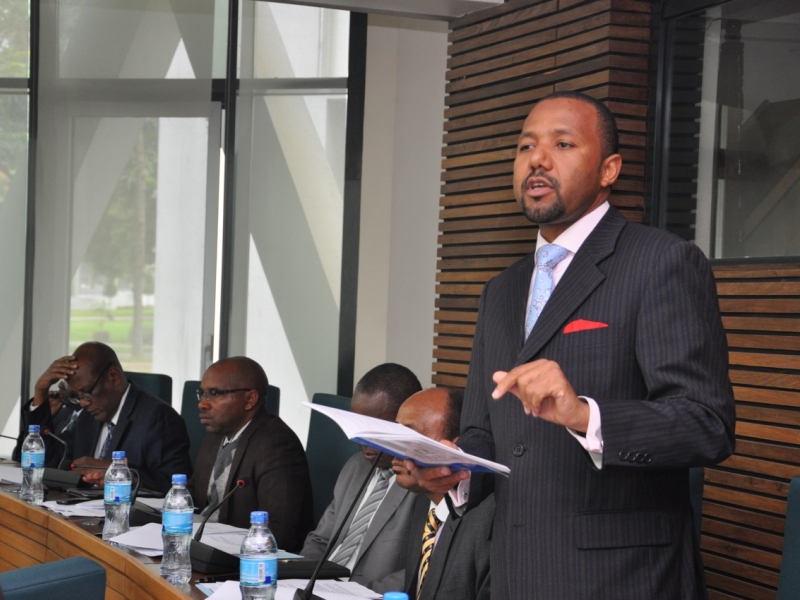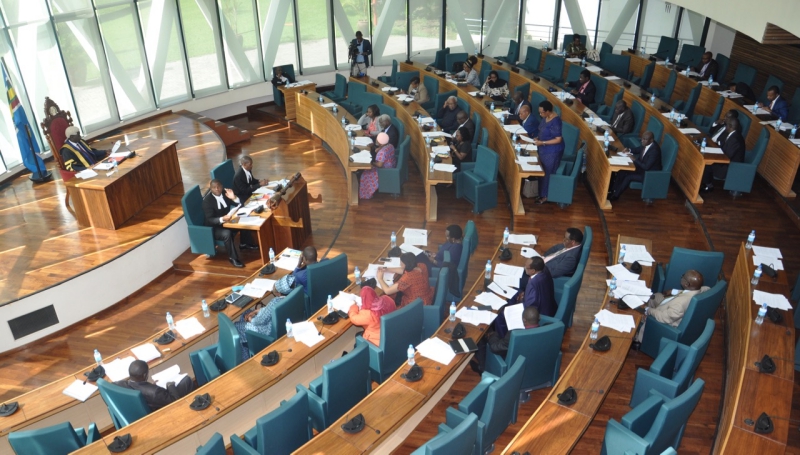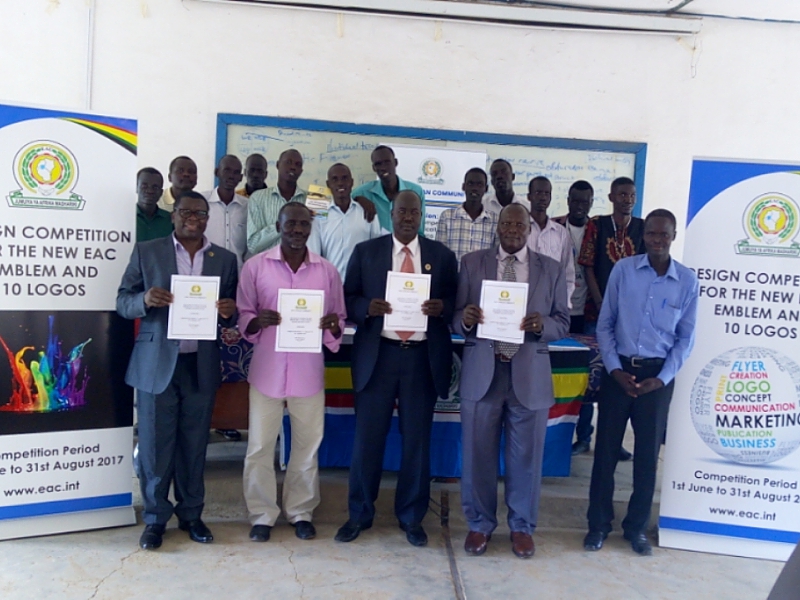
EALA passes 2017/18 Budget
East African Legislative Assembly; Arusha, Tanzania; 02 June 2017:
EALA yesterday considered and approved a Budget estimates for the Financial Year 2017/2018, totaling $110,130,183.
Uganda’s State Minister for EAC, Hon Julius Maganda, last week presented the Budget Speech to an attentive House on behalf of the 2nd Deputy Prime Minister and Minister for EAC, Uganda and Chair of the EAC Council of Ministers, Hon Dr. Ali Kirunda Kivenjija.
The Budget is allocated to the Organs and Institutions of the EAC as follows; East African Community Secretariat ($60, 183, 201), East African Legislative Assembly ($17, 996, 959) and the East African Court of Justice ($4,140,166).
The Inter-University Council for East Africa shall receive ($6,766,928), Lake Victoria Basin Commission ($11,960,643) while $ 2,466,655 is earmarked for the Lake Victoria Fisheries Organization. On their part, the East African Science and Technology Commission shall receive ($ 1,500, 164), East African Kiswahili Commission ($ 1,553,098) and the East African Health Research Commission ($ 2,225,324). The East African Competition Authority is to benefit from $1,337,045 in the Financial Year 2017/18.
The 2017/2018 Budget is to be financed by Partner State contributions through the Ministries of EAC Affairs ($50,226,522); Ministries responsible for Education – ($ 4,848,431) and Ministries responsible for Fisheries ($ 1, 549,254). Development Partners will support the Community to the tune of ($52, 868,638) while Member Universities will inject in to the kitty $ 303, 435. The miscellaneous revenue is pegged at $ 333,903.
The 2017/2018 Budget themed: “Accelerating Implementation of the EAC Integration Agenda” is a step-up from $101,374,589 presented to the House in the previous Financial Year. The Budget speech prioritizes on the consolidation of the Single Customs Territory (SCT) to cover all imports and intra-EAC traded goods, infrastructure development in the region and further liberalization of free movement of skilled labour across the Partner States.
The approval of the Budget speech was preceded by adoption of the Report on the EAC Budget presented by the Chair of the General Purpose Committee, Hon Dr Odette Nyiramilimo.
Several Members supported the debate. Hon James Ndahiro who suggested the amendment of the Budget Act to ensure that Financial Rules and Regulations need to be updated to reflect the current activities of the Community. On her part, Hon Emerence Bucumi said it was necessary for more funds to be injected into the agriculture sector.
It was noted that the EAC Budget for the Financial Year 2016/2017 had witnessed an unprecedented low outrun due to delay or non-remittance of funds from Partner States and Development Partners. As at15 May 2017, remittance of funds from Partner States stood at 43% resulting in delay of most planned programmes/activities.
Members therefore underscored the need for commitment and timely remittance of funds to guarantee effective implementation and set priorities in the EAC Budget Financial Year 2017/2018.
The Committee is of the view that a well thought out and co-ordinated approach to resource mobilization should be adopted by the Institutions in collaboration with the EAC Secretariat.
The Chairman of the Council of Ministers Hon. Dr Kirunda Kivenjija reiterated the need for further co-operation between the Council and the EALA.
Other Members who contributed to the debate were Hon. Mumbi Ngaru, Hon Dora Byamukama, Hon Susan Nakawuki, Hon Bernard Mulengani and Hon. Straton Ndikuryayo. Hon. Chris Opoka, Hon Shyrose Bhanji, Hon. Valerie Nyirahabineza, Hon.Nancy Abisai and the Secretary General of the Community, Hon Liberat Mfumukeko also gave a nod to the Committee Report.
Last week, Minister Maganda highlighted a number of achievements registered in the Financial Year 2016/2017, notably, the upscaling of the Single Customs Territory (SCT) through finalisation of operational instruments of the business manuals, deployment of SCT Monitoring and Evaluation tools and deployment of staff in some Partner States.
Following the successes registered during the initial stages of the Single Customs Territory, the roll out of goods cleared under the Single Customs Territory was expanded both on the Northern and Central Corridors.
- ENDS -
For more information, please contact:
Bobi Odiko
Senior Public Relations Officer
East African Legislative Assembly
Arusha, Tanzania
Tel: +255-27-2508240
Fax: +255-27-2503103
Cell: +255-787-870945, +254-733-718036
Email: BOdiko [at] eachq.org
Web: www.eala.org
About the East African Legislative Assembly:
The East African Legislative Assembly (EALA) is the Legislative Organ of the Community and has a cardinal function to further EAC objectives, through its Legislative, Representative and Oversight mandate. It was established under Article 9 of the Treaty for the Establishment of the East African Community.

